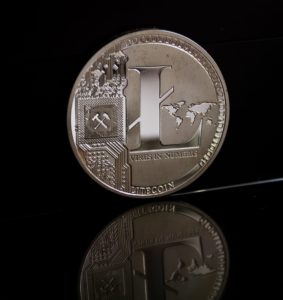A cryptocurrency is a software or alternative currency intended to act as a means of trade. It uses cryptography to encrypt and validate transactions, and to monitor the development of new cryptocurrency units. Cryptocurrencies are simply small entries in a ledger that nothing can alter until certain requirements are met. Cryptocurrency is an electronic trading mechanism that utilizes cryptographic functions to conduct financial transactions. Cryptocurrencies take advantage of blockchain technologies to pursue decentralization, openness, and immutability.
There are many types of cryptocurrency with various functions. Regardless of each function, a decentralized peer-to-peer network called the blockchain supports each digital currency. Blockchain advancement ensures that every single cryptographic type of cash is observed, regardless if they are being held in a mechanized wallet or being used in trading.
The viability of running such a framework, in any case, requires a foundation that guarantees that cheating and gaming the framework is beyond the realm of imagination.
A blockchain requires a database, where all purchases are rendered available to have absolute accountability. Using a spreadsheet encourages us to "act fair" and reduces the possibility of wasting doubles. The register is a list of records in a record that no one can alter without following specific requirements.
What is Bitcoin?
Bitcoin is a new currency that an unknown person created using the alias Satoshi Nakamoto in 2009. There are no middlemen doing transactions – meaning, no banks! Bitcoin can be used on Expedia to book hotels, on Overstock to purchase furniture and buy Xbox games. However, much of the buzz is around selling it to become wealthy. The cost of Bitcoin soared into thousands in 2017. Bitcoin pioneers wanted to take responsibility for the seller, eliminate the middleman, cancel interest charges and make transactions transparent, hack corruption and cut fees. They have created a decentralized system where you can control your funds and know what was happening.
It can be used to anonymously purchase products. Moreover, foreign transfers are easy and inexpensive since they are not connected to any government or subject to legislation. Small companies may prefer them because they do not have credit card fees. Some people are purchasing Bitcoins as savings, anticipating they can go up in value.
What is a Bitcoin Wallet
Bitcoins are not put away anyplace; for each Bitcoin address spared in the Bitcoin wallet of the individual who possesses the parity, there is a private key. Bitcoin wallets make it easier to send and receive Bitcoins and give the user ownership of the Bitcoin balance. The Bitcoin wallet comes in many shapes; the four main types of wallets are desktop, mobile, web, and hardware.
Desktop Wallets
Desktop wallets are mounted on a mobile machine and offer full control over the wallet to the customer. Desktop wallets enable consumers to build a Bitcoin account to pass and receive the Bitcoins. They also allow the consumer to store his private key.
Mobile Wallets
Mobile wallets are accessible as smartphone applications, particularly useful if you want to pay for something in a shop in Bitcoin, or whether you want to purchase, sell or transfer while you're on the run. All of the online wallets and several of the above- digital wallets have smartphone models, while others- Abra, Airbitz and Bread- developed with smartphones in mind.
It is fundamental to keep your Bitcoin wallet secure as Bitcoin wallets serve high-esteem focuses for programmers. Some protections include: encrypting the wallet with a strong password and selecting the choice of cold storage, i.e., offline storage. It is always best to periodically back up your desktop and mobile accounts, as problems with your machine or mobile device's wallet program could delete your holdings.
 Read More
Read More




